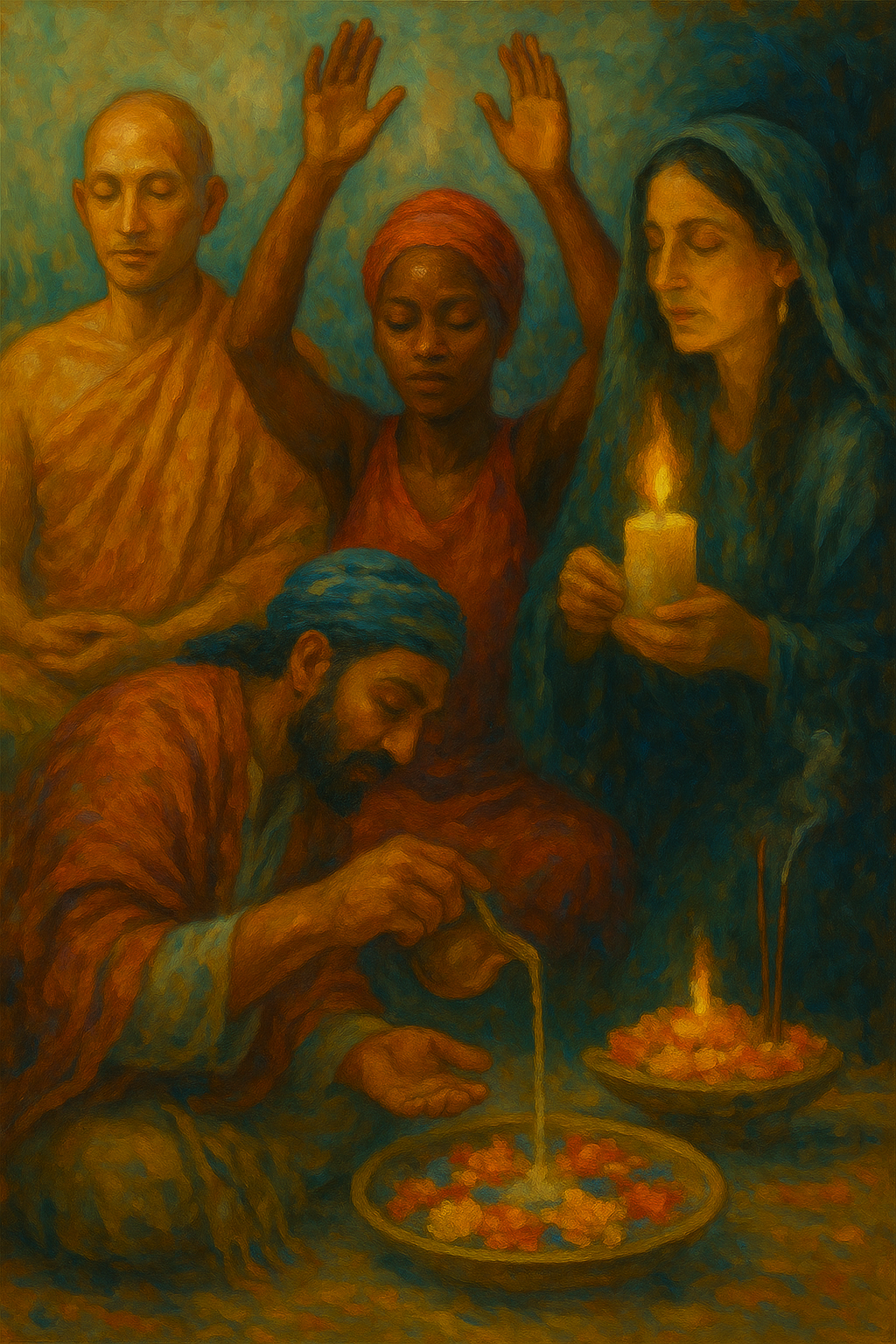Humans create rituals to connect with profound psychological needs such as reducing anxiety, enhancing social bonds, and providing structure in uncertain times. According to a study by the National Institutes of Health (NIH), rituals serve as powerful tools for mental well-being, grounding individuals and offering comfort amid life’s unpredictability.
Exploring the Psychological Necessity of Rituals
The psychology of rituals lies in their ability to meet intrinsic human needs. Rituals provide comfort, reduce anxiety, and foster a sense of control. According to Dr. Geraldine Dawson, a notable psychologist, “Rituals infuse order in chaos by providing predictable patterns, enhancing psychological resilience.”
How Rituals Impact Mental Health
1. Grounding Individuals: Rituals offer a predictable outcome amidst unknown variables, decreasing stress levels.
2. Reducing Anxiety: They provide a focus point, preventing anxious thoughts from spiraling.
3. Enhancing Control: Engaging in rituals helps individuals feel a sense of control over their environment.
4. Boosting Social Cohesion: Joint rituals reinforce communal bonds and shared identities.
According to NIH Study, engaging in rituals regularly improves emotional stability and mental resilience.
The Sociocultural Importance of Rituals
Rituals are a key sociocultural element that fortifies social structures and norms. These shared actions reinforce common beliefs and values, creating a collective identity.
Evolving Cultural Ritual Trends
Cultural rituals evolve with societal changes, yet maintain core symbolic meanings. The American Psychological Association (APA) notes that as cultural contexts shift, rituals adapt while still reflecting underlying societal values.
Notable Trends in Rituals:
* Transition from traditional to digital rituals (e.g., wedding streams)
* Increased incorporation of inclusivity in communal ceremonial practices
* Adoption of wellness-focused rituals in everyday lives
The Modern Interpretations of Ancient Rituals
Rituals continue evolving, influenced by modern values and technology. Wedding ceremonies, for example, maintain traditional roots but reflect current social changes, including inclusivity and virtual participation.
The Rise of Digital Rituals
Digital platforms have created novel ritual forms, transforming traditional practices. Online gatherings, memorial services, and virtual celebrations embody new-age rituals enabling widespread participation irrespective of physical distances.
Comparative Analysis: Traditional vs. Modern Rituals
| Aspect | Traditional Rituals | Modern Rituals |
|---|---|---|
| Location | Physical community settings | Virtual platforms (e.g., Zoom, social media) |
| Participation | Localized group participation | Global, remote engagement |
| Inclusivity | Often limited to specific communities | Broadly inclusive and culturally diverse |
| Cultural Representation | Strong adherence to traditional elements | Fusion of traditional and contemporary cultural norms |
Wellness Rituals and Daily Mindfulness
Incorporating wellness rituals revolutionizes personal growth and mental health. Practices such as gratitude rituals enhance mindfulness, offering a break from daily stressors.
Steps to Incorporate Mindfulness into Daily Life:
1. Gratitude Journaling: Spend 5 minutes daily noting things you’re thankful for.
2. Morning Meditation: Start the day with a brief meditation session to set intentions.
3. Evening Reflection: Conclude the day reflecting on positive experiences.
4. Participate in Group Yoga: Engage in communal wellness activities to reinforce social bonds.
Frequently Asked Questions
What Are Rituals?
Rituals are symbolic actions performed in a prescribed manner to achieve particular goals or fulfill societal norms. They serve as frameworks for socialization, cultural continuity, and personal enrichment.
How Do Rituals Diffuse Across Cultures?
Rituals often transfer and transform through cultural interchange, adapting to incorporate new elements while maintaining traditional roots. This adaptability ensures the endurance of rituals across various cultural paradigms.
Are Digital Rituals Real Rituals?
Yes, digital rituals are ‘real’ rituals that meet psychological, social, and emotional needs, utilizing technology as a modern medium for traditional functions.
Conclusion
Rituals are vital to human existence, connecting individual and collective human experiences. They shape identity, enhance well-being, and adapt to societal transformations. Embrace rituals as an essential strategy for navigating the emotional complexities of life with resilience and community support.
